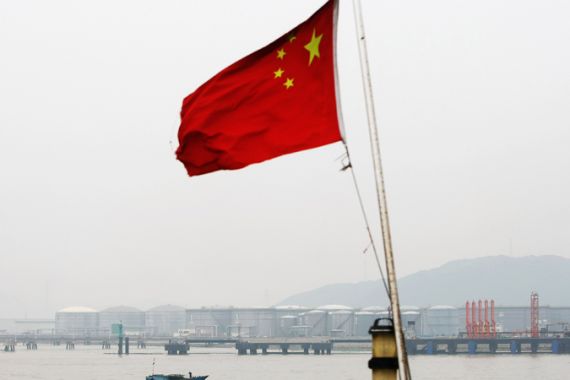China-Russia oil pipeline opens
New pipeline effectively to double Russian exports of crude oil to world’s largest energy consumer.

Russia has begun oil shipments to China via an East Siberian link, with supplies delivered in January expected to hit 1.3 million tonnes, Russian officials say.
Igor Dyomin, a spokesman for Russian oil pipeline monopoly Transneft, confirmed on Saturday that the supplies had begun.
Keep reading
list of 4 itemsWhy are nations racing to buy weapons?
Parallel economy: How Russia is defying the West’s boycott
US House approves aid package worth billions for Ukraine, Israel
Russia, the world’s biggest crude oil exporter, has concentrated most of its 50,000km-long pipeline network in West Siberia, but the new Eastern Siberia-Pacific Ocean (ESPO) pipeline gives it access to the world’s largest energy consumers’ market.
According to the final schedule for crude oil exports and transit, in January-March 2011, Russia will ship 3.68 million tonnes of oil to China via ESPO.
“According to our plan, the input capacity 2,100 cubic metres per hour, that’s 43,000 tonnes per day. This is what we have so far,” Li Yunchao, an official with the China Petroleum Pipeline Company, told Al Jazeera.
An annual plan envisages the supply of 15 million tonnes (300,000 barrels per day). Many oil market participants expected it would effectively double Russian sales to China, which totalled 12.8 million tonnes (308,000 bpd) in the first 10 months of 2010.
Transneft started to ship the barrels along the first stage of the pipeline, which runs in a 2,757km arc above Lake Baikal. So far the oil had been transported only by rail to the Pacific port of Kozmino.
Tthe crude flowed on Saturday to Daqing in China from Russia’s Skovorodino via the pipeline.
When the 4,070km the pipeline’s second stage is finished in 2013, it will be the world’s longest. At a cost of $25bn, it dwarfs all other infrastructure projects in post-Soviet Russia.
Russian state oil firm Rosneft has been sending oil to China by rail ever since it bought the biggest unit of defunct oil giant Yukos six years ago. The purchase was facilitated by a $6bn loan from China, which effectively prepaid $17 per barrel for 48.4 million tonnes of oil.
That contract ran out this year, and Rosneft decided not to extend it, citing the low selling price.